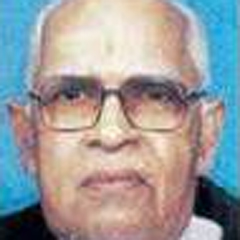The controversy over the advocate general’s post - if he is above or below a minister - is pointless. The law officer is entitled to counsel the government, the cabinet and the legislative assembly in matters of Constitution. The advocate general is equal to a high court judge in the legal system, a minister in the executive and lawmakers in the legislature. How can he be subject to government control?
Article 165 of the Constitution stipulates that the advocate general should be as qualified as a high court judge. There are difference. A high court judge is sworn into office and he will retire at 62 years of age. The Supreme Court has made it clear in the Balwant Singh case.
The advocate general has a right to attend a cabinet meeting and advise the cabinet when the executive body is in need of counsel in constitutional or legal matters. He is entitled to interpret constitutional issues even in the legislative assembly.
When M.P. Kurup served as the advocate general, additional advocate general Cyriac Joseph had spoken in the assembly on a constitutional issue.
There is an interesting anecdote from Subramanian Potty’s tenure as advocate general. The then law minister ordered the appointment of a senior officer in the law department to oversee the functioning of the Advocate General’s Office. When the officer reached the AG’s Office with his appointment order, Potty refused to accept it. The officer was returned immediately.
Subsequent governments and law departments had stayed away from meddling with the office even though it technically comes under the government.
The rules are clear about the advocate general’s role in allotting cases to the government law officers. If the government had any differences, it would have to issue a special order.
When M.M. Abdul Khader was the advocate general, the government had issued an order to entrust additional advocate general T.C.N. Menon with cases related to forests. When T.C.N. Menon died, the advocate general moved the responsibility to me, a government pleader.
The government is supposed to seek the legal counsel of the law secretary first and then the advocate general though the convention is not always adhered to.
When the advocate general and the law secretary differ on a point and the advocate general’s counsel is not acceptable to the government, the matter is left for a court to decide.
The courts seek the advocate general’s arguments in complex legal matters. An assurance an advocate general gives before a court on behalf of the government is treated on a par with an affidavit.
Read: Latest Columns | Kerala vs Bengal: CPM’s Congress dilemma

























